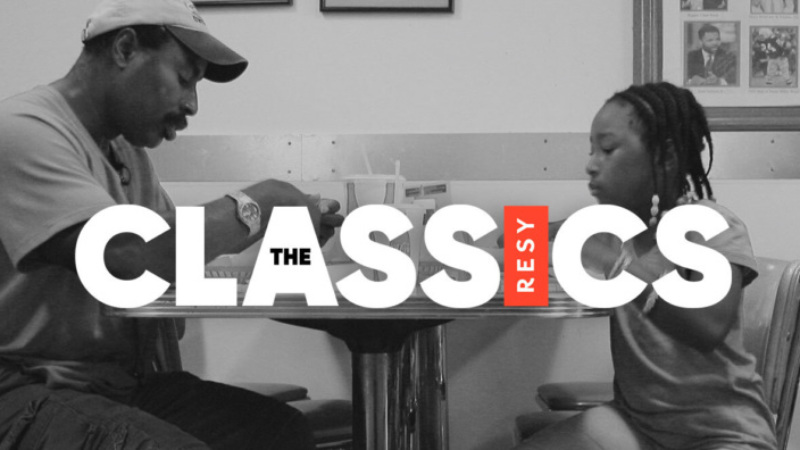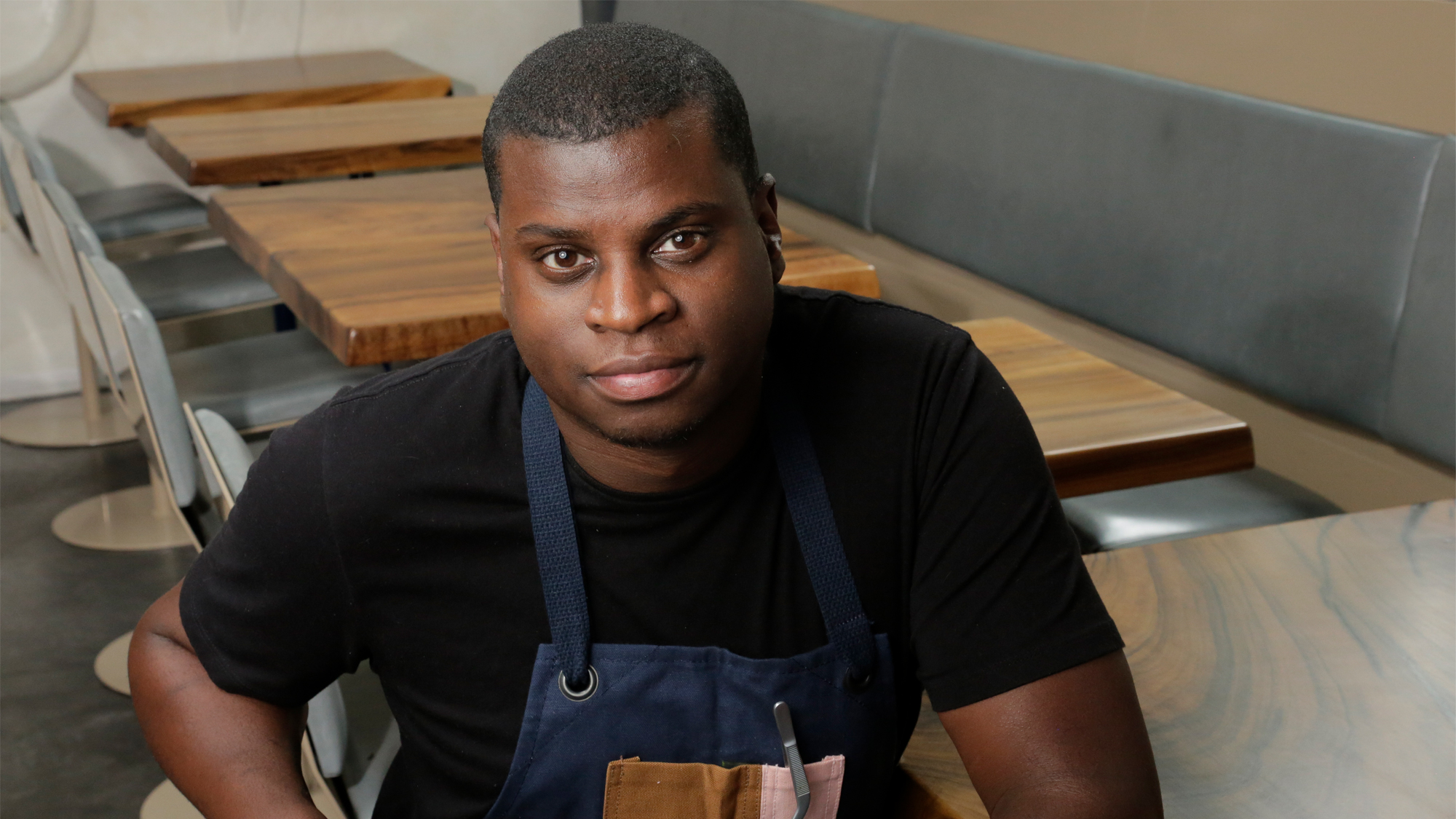
Restaurant Diaries San Francisco
On Comfort Food and Black Excellence
Geoff Davis is a chef in San Francisco. He’s planning on opening a creative wine bar, as well as a…
Close
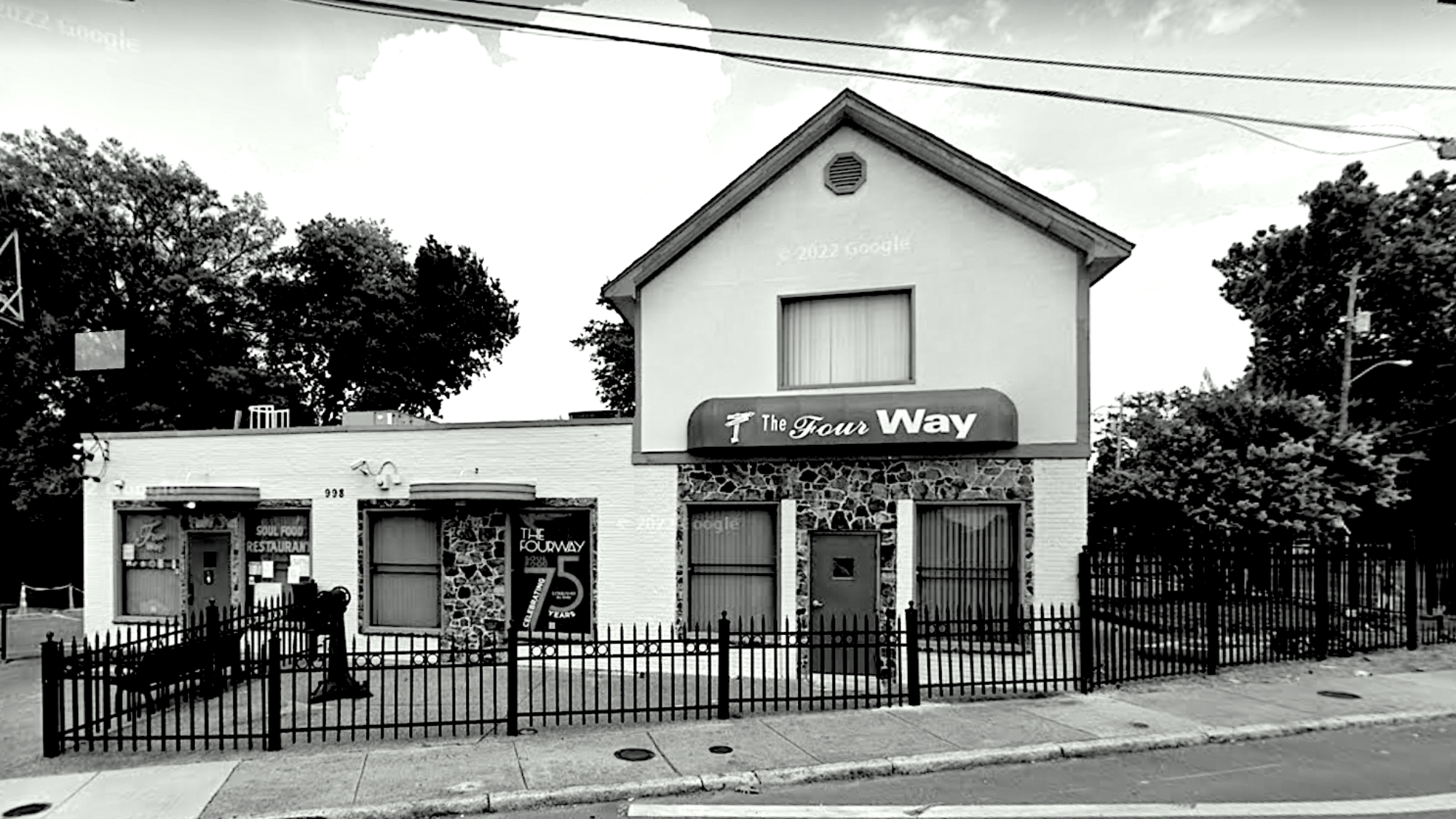
Geoff Davis is the chef and owner of the upcoming Burdell in Oakland. Follow him on Instagram at @geonate88.
***
In the summer of last year, I had some very meaningful time off from my chef duties, traveling with my mother to Tennessee, both of our first time visiting the Volunteer State. We spent some time in Nashville and then drove to Memphis and back. Nashville felt metropolitan yet uncongested, surprisingly slick with a hint of the past sprinkled in. Memphis, though, was different.
Memphis remains inseparable from the struggle for progress and Civil Rights. During the height of the movement, the city was an epicenter and Black people from around the country informed its trademark soul music and soul food. Decades later, Memphis bears a dull coat upon first impression: rusted abandoned factories, overgrown empty lots, as though after Dr. King’s assassination nothing was ever quite the same there. It was a lot to take in — so much legacy left behind, a heritage of change.
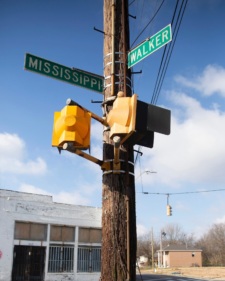
With this, there remain glimmers of distinction when you look for it. Locals take so much pride in the small things. There’s great music everywhere you turn, and cool, revitalized neighborhoods. And I cannot recommend enough a lengthy visit to the museum at Stax Records in the Soulsville neighborhood and wandering around a bit for some record shopping. Mom and I had an emotional experience at the National Civil Rights Museum; it sparked so many long talks about where, as a people, we’ve been and where we are going.
I planned most of our meals during our trip — special shoutout to Cozy Corner in Memphis and Arnold’s in Nashville — but revelation occurred when we headed for lunch at The Four Way Restaurant.
I sought it out because of its legendary status as an historic restaurant. But once we arrived, the touchpoints were overwhelming. Formerly known as The Four Way Grill, it is an unbelievably important place for American food and the struggle for Civil Rights, almost overwhelmingly so.
As you pull into the parking lot behind the stone-accented building at 998 Mississippi Boulevard, on the corner of Walker, you notice the restaurant like it’s in a bit of a time warp. You head inside and are immediately hit by a wall of conditioned air and can finally breathe again, gasping outside on the sticky summer air. My mom hurried in while I scoped a bit more in the parking lot. The interior is appropriately dated, but tidy, with lots of photos from the years on the walls.

Restaurant Diaries San Francisco
Geoff Davis is a chef in San Francisco. He’s planning on opening a creative wine bar, as well as a…
The restaurant was doing a modified version of counter service, due to the pandemic, with a large menu posted near the entrance. The menu was large and completely made up of Soul food classics; we are in Soulsville after all. There is a comforting special that corresponds with a day of the week: stewed neckbones, smothered pork chops, catfish. It was a touch quiet on the Saturday we were there, and easily we picked a green vinyl covered table to make our own. I started with an icy drink they call the “VIP,” half lemonade half sweet tea. Cloying yet acidic and just about necessary on that sweltering afternoon.
I took in the photos on the wall and the history permeating every nook. Dr. King played pool and ate there often; it’s said his last meal was from The Four Way. There’s even accounts of what that meal may have been. BB King was a regular. Aretha Franklin was born around the corner. Al Green, Elvis Presley, and Isaac Hayes all entered from the back door as to not be seen. Marches were planned in the dining room and the energy to persevere came from this kitchen. The restaurant would also open late to feed tired marchers after a long day. When it comes to the struggle for Civil Rights, I can’t think of many restaurants with more significance.
Marches were planned in the dining room and the energy to persevere came from this kitchen. The restaurant would also open late to feed tired marchers after a long day. When it comes to the struggle for Civil Rights, I can’t think of many restaurants with more significance.
Irene and Clint Cleaves opened the Four Way Grill in 1946 by taking out a loan against their home. The restaurant started as a tiny counter in a pool hall with an adjacent barber shop and grew to have a full dining room and a private room in the back. In its heyday, you rang a bell and were led into the dining room draped white tablecloths and served by waiters wearing white, an uncommonly elegant affair for soul food.
Clint died in 1970, leaving Irene to run the restaurant. Irene, by all accounts, was a consummate host and leader for decades. The restaurant stumbled in the 1990s when she fell ill and eventually passed away in 1998. After serving for decades as an axis point for the community, it closed briefly after some financial trouble but soon was purchased and restored by the Bates family.
Inheriting from her parents, Patrice Bates Thompson and her husband run it today, charged with a sense of great duty, as she grew up in the neighborhood. Day in and day out, they work to preserve its importance.
This is world class cooking in a great setting that pays homage and looks forward with reverence.
As the food started to arrive in Styrofoam to-go containers, it became clear the cooking is truly excellent. This isn’t just a dusty, old museum.
The fried chicken is, without careless hyperbole, the best I’ve ever had, seriously. Laughably crunchy, fully seasoned throughout, yet somehow light and impossible to sit down. The mac and cheese would win the potluck, and the stewed turnip greens came with incredible balance of richness and vinegar. Buttery stewed cabbage was a surprising favorite as well as the okra, cooked simply as well. Fall apart, smoky braised green beans made my mom emotionally nostalgic as it brought her back to childhood. They were unctuous and tasted so vibrant despite the apparent long cooking time.
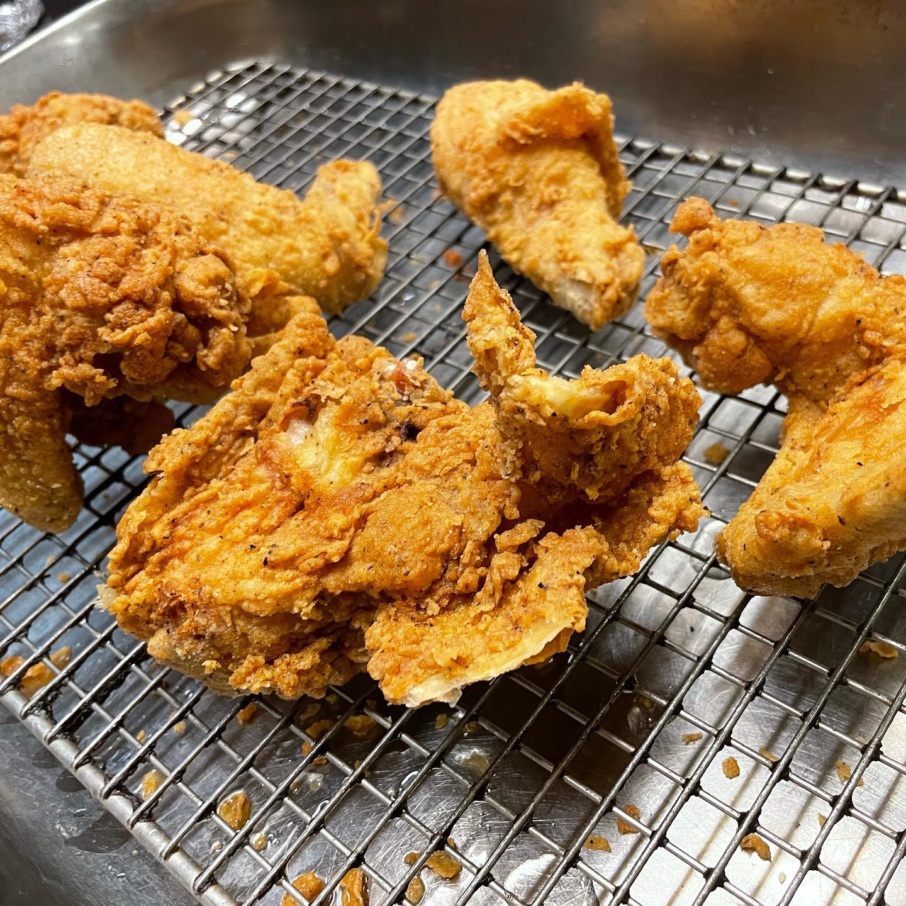
My mom and I discussed the comparison between the dishes there and dishes of our family members in between eager bites. It tasted just like home cooking — I can still feel the honesty. She compared some of the dishes to the cooking of, no longer with us, aunties and matriarchs. This brought up other memories formed at wakes and weddings. We time-traveled together for a few moments. This is what a good restaurant is supposed to do.
A historic site, a meeting place, an institution for the Civil Right movement, a restaurant. It’s not often a restaurant, or just about anything for that matter, especially one that wears so many weighty and historical hats, exceeds expectations. At the outset, I was expecting decent food and a good story, but was met with a richness in history and flavor that not only nourished me but humbled me.
This is world class cooking in a great setting that pays homage and looks forward with reverence. It’s worth a journey just to be there to sit where Kings dined, to feel part of all the history here. Memphis may be still sorting out its future, but by looking back with purpose, it’s easily within reach. Moving forward will begin by shouting about all the good there is here, now; silence isn’t an option. There’s a lot to be proud of.
The Four Way is one of these great things, not only in Memphis but in our country. It spoke to me in such a moving way, one that charged me not only for the future of soul food but the future of American food. I am so inspired from my brief time there to honor these traditions and recipes to highlight their importance. Looking back is looking forward.
Geoff Davis is the chef and owner of the upcoming Burdell in Oakland. Follow him on Instagram at @geonate88.
